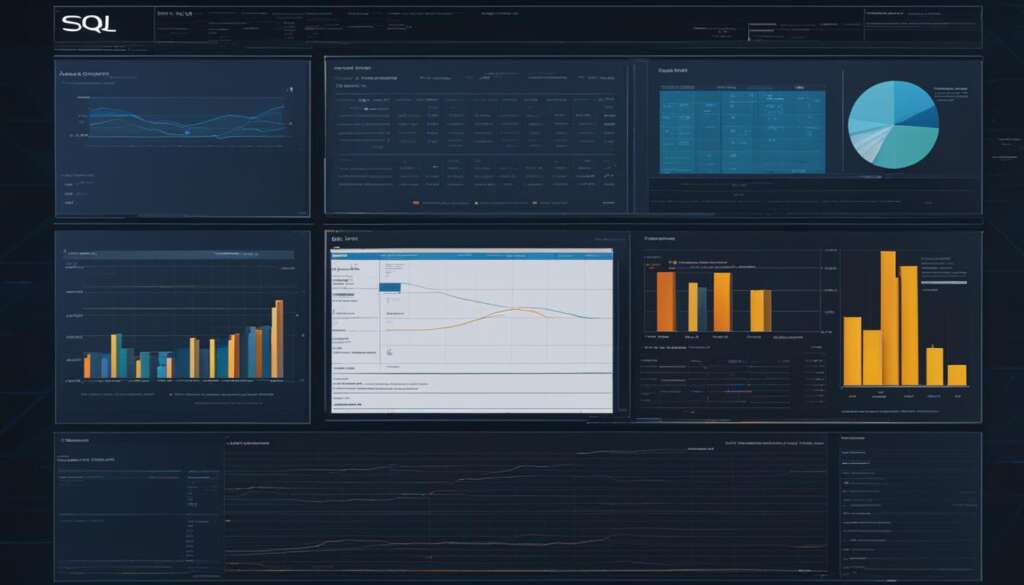Table of Contents
Server security is crucial for protecting your data and ensuring the integrity, availability, and confidentiality of your server. By implementing secure server solutions, you can safeguard your data from various threats such as DDoS attacks, code injection, cross-site scripting, and unauthorized access.
In this article, we will explore the best practices and tips for securing your server, including establishing secure connections, using secure shell keys, implementing SSL certificates, and more.
Join us as we delve into the world of server security and discover the key techniques and measures to protect your valuable data.
Establish a Secure Connection with SSH
SSH (Secure Shell) is a protocol that allows secure remote access to your server. By using SSH, you can establish an encrypted communication channel between your computer and the server, preventing unauthorized access and protecting data transmission.
It is recommended to change the default SSH port to a random port number for added security. This helps to reduce the visibility of your server and makes it harder for attackers to identify and target.
Additionally, using SSH keys instead of passwords for authentication provides a more secure way to connect to your server. SSH keys consist of a public key and a private key. The public key is placed on the server, while the private key is stored on your local device.
To establish a connection, your local device uses the private key to authenticate with the server. This method eliminates the need to enter passwords, which can be vulnerable to brute-force attacks or eavesdropping.
Take note that it is critical to keep the private key confidential, as it provides access to your server. Store it in a secure location and avoid sharing it with unauthorized individuals.
By implementing SSH and utilizing SSH keys, you can enhance the security of your server and protect sensitive data from unauthorized access.
Benefits of Using SSH:
- Secure data transmission
- Prevents unauthorized access
- Mitigates brute-force attacks
- Eliminates the need for passwords
- Establishes an encrypted communication channel
Protect Data Transfer with FTPS and SSL
When it comes to secure server solutions, protecting data transfer is a critical aspect of maintaining server security. Two key technologies that can help achieve this are File Transfer Protocol Secure (FTPS) and SSL certificates.
File Transfer Protocol Secure (FTPS) is a secure file transfer protocol that encrypts data during transfer, ensuring that sensitive data remains protected from unauthorized access or data theft. By encrypting files before sending them, you add an extra layer of security to your data transfer process.
SSL certificates play a vital role in establishing secure communication between your server and clients’ browsers. These certificates encrypt sensitive information, such as login credentials and payment details, and verify the authenticity of the server. By implementing SSL certificates, you establish user authority and protect against data breaches.
Enhance your server security with FTPS and SSL:
- Encrypt files using FTPS: By using FTPS for your file transfers, you add an extra layer of security to your data. Ensure that all sensitive files are encrypted before sending them.
- Implement SSL certificates: Obtain and install SSL certificates on your server to encrypt sensitive information and establish a secure connection with clients’ browsers. This helps protect against unauthorized access and data breaches.
To visually represent the importance of data transfer security, refer to the table below:
| Data Transfer Method | Security Level | Benefits |
|---|---|---|
| Unencrypted FTP | Low | Quick and easy file transfer |
| FTPS (File Transfer Protocol Secure) | High | Encrypted file transfer, protection against unauthorized access |
| SSL/TLS | High | Secure communication, user authentication |
By prioritizing data transfer security through the use of FTPS and SSL certificates, you can ensure that your server remains protected and your sensitive information is safeguarded from potential threats.

Enhance Security with VPN and Intrusion Prevention
In today’s digital landscape, securing your server against potential threats is essential to protect your data and maintain the integrity of your systems. Two crucial tools that can significantly enhance server security are Virtual Private Networks (VPNs) and intrusion prevention software.
Virtual Private Networks (VPNs) establish a secure and private connection to your server, especially when accessing it remotely. By encrypting your data and restricting access to selected users, VPNs provide a reliable defense against attacks from malicious users on open networks.
Intrusion prevention software is another vital layer of protection for your server. It proactively monitors login attempts and safeguards against brute-force attacks, where hackers attempt to gain unauthorized access by guessing passwords. By proactively detecting suspicious login attempts and blocking IP addresses involved in such attacks, intrusion prevention software ensures the security of your server.
In combination, VPNs and intrusion prevention software work hand in hand to create a robust shield around your server, preventing unauthorized access and safeguarding against brute-force attacks.
Through the use of VPNs and intrusion prevention software, you can take significant steps towards fortifying your server’s security and ensuring the safety of your valuable data.
| VPN | Intrusion Prevention Software |
|---|---|
| Establishes a secure and private connection to your server | Proactively monitors login attempts |
| Restricts access to selected users | Protects against brute-force attacks |
| Encrypts data for secure communication | Detects suspicious login attempts and blocks IP addresses |
By prioritizing the implementation of VPNs and intrusion prevention software, you can enhance your server’s security measures, safeguard your sensitive data, and ensure peace of mind.
User Management and Password Security
User management plays a vital role in maintaining the security of your server. By implementing strong user management practices and enhancing password security, you can significantly reduce the risk of unauthorized access and data breaches. Let’s explore some best practices for user management and password security that will help fortify your server against potential threats.
1. Disable Root Login and Create Limited User Accounts
One of the first steps in securing your server is disabling the root login for SSH (Secure Shell). Instead, create a limited user account that will be used for administrative tasks. This limits the potential damage caused by an attacker gaining access to the root account. To perform administrative tasks, use the sudo command with the limited user account, which requires the user to authenticate before accessing privileged commands.
2. Set Password Requirements
To enhance password security, it is essential to establish strong password requirements. Implement minimum length and complexity criteria, making sure passwords include a combination of uppercase and lowercase letters, numbers, and special characters. Enforce password expiration policies, prompting users to change their passwords regularly. Additionally, encourage the use of passphrases instead of simple passwords, as they are more difficult to crack.
3. Avoid Password Reuse
Reusing passwords across multiple accounts increases the risk of a security breach. If one account is compromised, the attacker can gain access to other accounts as well. It is crucial to educate users about the importance of avoiding password reuse and implementing unique passwords for each account. Encourage the use of password managers to securely generate and store complex passwords, reducing the burden of remembering multiple passwords.
By implementing robust user management practices and enhancing password security, you can strengthen the security of your server and protect your sensitive data from unauthorized access.

| User Management Best Practices | Password Security Best Practices |
|---|---|
| Disable root login | Set password requirements |
| Create limited user accounts | Avoid password reuse |
| Use sudo command for administrative tasks | Encourage the use of passphrases |
| Implement password expiration policies | |
| Use password managers |
Keep Software Up to Date and Configure Firewalls
Regularly updating the software on your server is vital to ensure it has the latest security patches and fixes for vulnerabilities. Outdated software can leave your server vulnerable to attacks. Implementing automatic updates or testing updates in a separate environment before applying them to the production server can help ensure a smooth update process. Additionally, configuring and maintaining a firewall is essential for server security. Firewalls filter incoming and outgoing traffic, block unauthorized access, and provide protection against DDoS attacks.
Keeping your server’s software up to date is one of the most effective measures you can take to enhance its security. Software developers release updates regularly to address security vulnerabilities, bugs, and performance issues. By promptly applying these updates, you can ensure that your server is equipped with the latest security patches and fixes, reducing the risk of potential exploits and unauthorized access.
One way to simplify the update process is to enable automatic updates. This feature allows your server to download and install updates automatically, ensuring that your software remains up to date without requiring manual intervention. However, it’s important to test updates in a separate testing environment before applying them to your production server. This allows you to identify any compatibility issues or conflicts with your existing configuration and address them before the update impacts your server’s performance.
In addition to updating your software, configuring and maintaining a firewall is crucial for server security. Firewalls act as a barrier between your server and the outside world, filtering incoming and outgoing network traffic. They prevent unauthorized access attempts and establish a secure environment for your server.
Firewalls can be implemented at different levels, including network firewalls, host-based firewalls, and web application firewalls. Network firewalls protect your entire network by monitoring and filtering traffic based on predefined rules. Host-based firewalls, on the other hand, operate at the individual server level, providing an additional layer of protection against both external and internal threats. Web application firewalls specifically focus on protecting web applications and websites from attacks such as SQL injection and cross-site scripting.
Firewalls can be configured to allow or block specific types of traffic based on known patterns or signatures. They can also be configured to detect and prevent Distributed Denial of Service (DDoS) attacks, which can overwhelm your server’s resources and disrupt its normal functioning. By having an effective firewall in place, you can control and monitor the traffic flow to and from your server, significantly reducing the risk of unauthorized access and potential security breaches.
| Benefits of Keeping Software Up to Date and Configuring Firewalls |
|---|
| 1. Protection against known vulnerabilities and exploits |
| 2. Defense against unauthorized access and data breaches |
| 3. Prevention of DDoS attacks and other forms of network abuse |
| 4. Maintenance of a secure environment for your server and its data |
Conclusion
Protecting your server is paramount for preserving the security, integrity, and availability of your valuable data. By adhering to the best practices and tips outlined in this article, such as establishing robust secure connections, implementing encryption protocols, and managing user access with strong passwords, you can fortify your server’s defenses and safeguard your sensitive information. It is essential to adopt a proactive approach by regularly updating your server with the latest security patches and configurations, as well as consistently reviewing and reinforcing your server security measures to stay ahead of potential threats.
Remember, a secure server is the foundation of a protected digital infrastructure. By prioritizing server security, you can mitigate the risk of unauthorized access, data breaches, and other malicious activities. Embrace these strategies to enhance server protection and maintain a robust security posture for your organization or personal projects.
Investing time and effort in server security is an investment in the future of your data and your business. Embrace the power of secure server practices to safeguard your information, maintain business continuity, and build trust with your clients and customers. Prioritize server security today to achieve peace of mind and ensure a solid foundation for your digital operations.
FAQ
Why is server security important?
Server security is crucial for protecting your data and ensuring the integrity, availability, and confidentiality of your server. It helps safeguard your data from threats such as DDoS attacks, code injection, cross-site scripting, and unauthorized access.
How can I establish a secure connection with SSH?
Secure Shell (SSH) is a protocol that allows secure remote access to your server. By using SSH, you can establish an encrypted communication channel between your computer and the server, preventing unauthorized access and protecting data transmission. It is recommended to change the default SSH port and use SSH keys for authentication.
How can I protect data transfer with FTPS and SSL?
File Transfer Protocol Secure (FTPS) is a secure file transfer protocol that encrypts data during transfer to prevent unauthorized access or data theft. Encrypting files before sending them and implementing SSL certificates on your server ensure secure communication and protect against data breaches.
How can VPNs and intrusion prevention software enhance server security?
Virtual Private Networks (VPNs) provide a secure and private connection to your server, restricting access to selected users and preventing attacks from malicious users on open networks. Intrusion prevention software detects suspicious login attempts and protects against brute-force attacks, blocking IP addresses to safeguard your server from unauthorized access attempts.
What are some best practices for user management and password security?
It is recommended to disable root login for SSH and create a limited user account for administrative tasks using sudo commands. Setting password requirements and using passphrases instead of simple passwords can significantly enhance password security. Avoid reusing passwords and use a password manager to generate and store unique passwords for each account.
How important is keeping software up to date and configuring firewalls?
Regularly updating the software on your server ensures it has the latest security patches and fixes for vulnerabilities, protecting it from attacks. Configuring and maintaining a firewall is essential for server security as it filters incoming and outgoing traffic, blocks unauthorized access, and provides protection against DDoS attacks.
Why should I focus on server security?
Ensuring the security of your server is of utmost importance to protect your data, maintain system integrity, and prevent unauthorized access. By implementing the best practices discussed, you can enhance server security, safeguard sensitive data, and stay ahead of potential threats.













